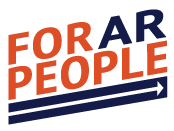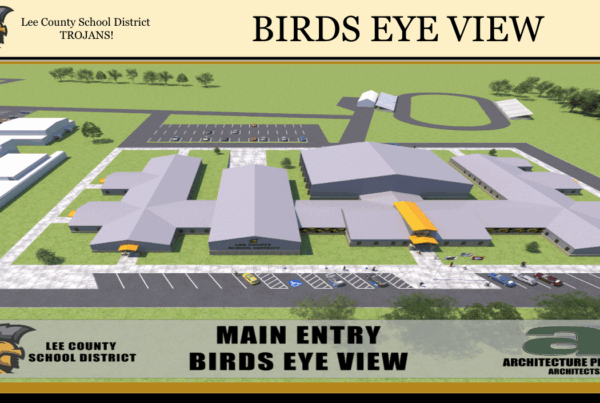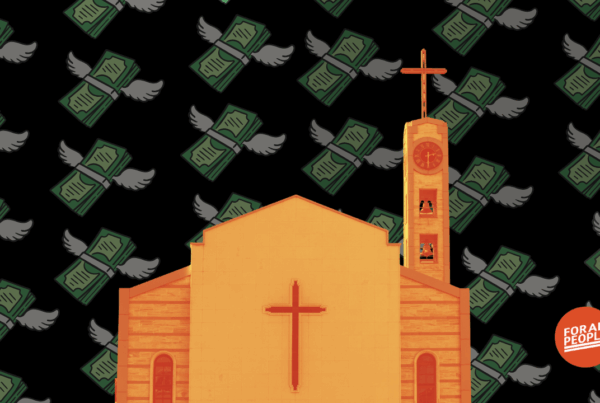Lawmakers are eyeing Utah’s workforce model, but it’s bundled with Medicaid work requirements and cuts to the popular healthcare program. This is bad news for Arkansas’s healthcare workforce.
On Monday, the Arkansas Legislative Council’s Hospital, Medicaid, and Developmental Disability Study subcommittee heard Mason Bishop, a consultant with WorkEd, pitch Utah’s “One Door” workforce system as a model for Arkansas. The Utah program, in a nutshell, centralizes all government benefit programs in one office to reduce the amount of red tape people have to cut through.
The recommendations sound appealing considering Arkansas’s fragmented service system. Utah has fewer bureaucratic hoops, better coordination between agencies, and a stronger focus on getting people into jobs and on an upward path to economic mobility.
The policy fine print that Bishop lauded, however, tells a different story. The consultant’s materials tie Arkansas reform directly to the federal government’s One Big Beautiful Bill (OBBB) push. OBBB is less about helping families find work and more about attaching new work requirements and benefit cuts to critical services like Medicaid and SNAP.
What WorkEd wants to see happen in Arkansas
Bishop came equipped with powerful data demonstrating the fractured nature of our state’s human services. As a case study, Utah has been successful in integrating services and has become a national model by running its workforce and human services programs under one roof. Families and jobseekers have one case manager who helps them access Medicaid, TANF, food assistance, job training, and more. Everything is all in one place.
Efficiency across these service providers, it turns out, is possible. Utah’s experience tells us that reducing bureaucracy and braiding funding streams helps people find good jobs faster.
This is good data for Arkansas, where the GOP supermajority insists on cutting Medicaid and attacking safety-net programs, the foundational pillars for human services and workforce development. Our system is fragmented across ten separate workforce development areas, multiple agencies, and a maze of eligibility hoops. Arkansans who utilize these services know these hoops very well.
Meanwhile, Arkansas has 86,000 open jobs, many in healthcare, while hospitals and clinics across the state struggle to hire nurses, behavioral health specialists, and other essential workers.
But here is where it gets frustrating – WorkEd wants to see Arkansas embrace Congress’ One Big Beautiful Bill, which will:
- Create the first ever national Medicaid work requirement by 2027
- Create a shortened six month re-determination timeframe and stricter eligibility reporting requirements
- Restrict SNAP benefits by expanding work rules, limiting exemptions, and imposing state penalties if paperwork errors are too high
- Implement provider funding caps that will further squeeze hospitals and clinics, many of which are in danger of closure
Essentially, WordEd’s embrace of the OBBB is an entire restructuring of Medicaid and SNAP designed to make fewer people eligible for help.
Not great.
This would hurt Arkansas’s healthcare workforce
We mentioned that Arkansas has 86,000 open jobs, with hospitals and nursing homes struggling the most to meet workforce needs. And you know that our rural health systems are already hanging by a thread. Here’s what OBBB would do:
- Push workers out of coverage: Remember when Arkansas tried Medicaid work requirements in 2018? Thousands lost healthcare, but employment didn’t go up. Red tape ≠ more jobs, and not to mention a federal appeals court found the program to be unlawful.
- Destabilize hospitals and clinics: Cutting off Medicaid patients means lost revenue for rural providers; capping state financing tools digs the hole deeper.
- Punish frontline workers: Job like healthcare aides, nursing assistants, and home health workers require employees to juggle unpredictable hours; enforcing 20 hours of weekly, predicable work won’t help an industry that is already struggling to sustain its workforce.
The consultant’s slides were full of buzzwords about “efficiency” and “integration.” But here’s the catch: the proposed reforms come bundled with more work requirements and more eligibility cuts. Streamlining services under one umbrella, like Utah, makes sense. But doing this while smuggling in policies that shrink Medicaid and SNAP is pretty crappy.
Ask your lawmakers these questions:
- If Arkansas’s 2018 Medicaid work requirement caused thousands to lose coverage without boosting employment, why would we repeat the same mistake statewide?
- How will hospitals and clinics survive with new caps on provider funding? What does Arkansas’s rural hospital association have to say about this?
- Why would we make it harder for healthcare workers to keep coverage when we already face workforce shortages?
- If Utah’s model works because it leverages Medicaid and TANF funding, how does slashing those very programs make Arkansas more “efficient”?
Arkansas families don’t need a “big, beautiful bill” that cuts off their health care and adds even more hoops to accessing support services. We need policies that help Arkansas workers, keep hospitals open, and solve the healthcare staffing crisis. We want to see lawmakers solve these problems first.





